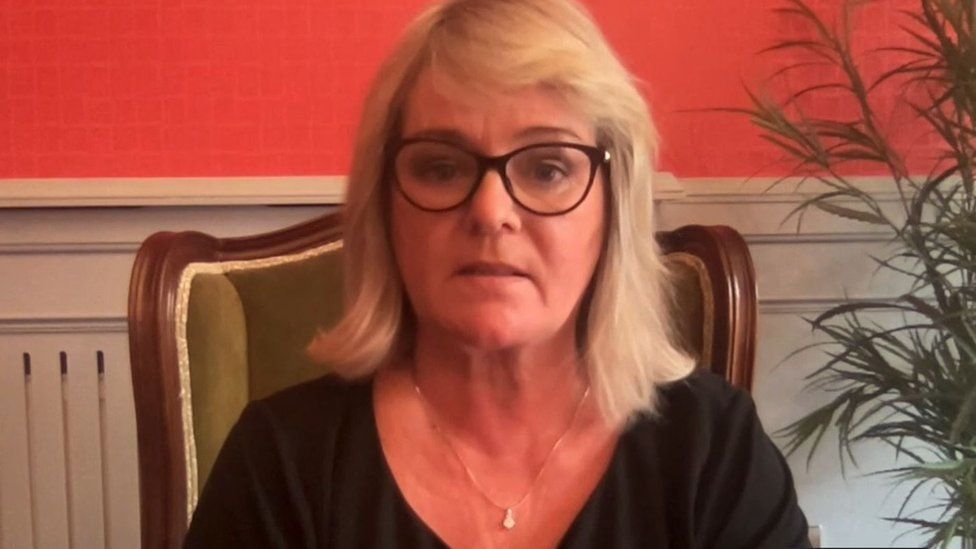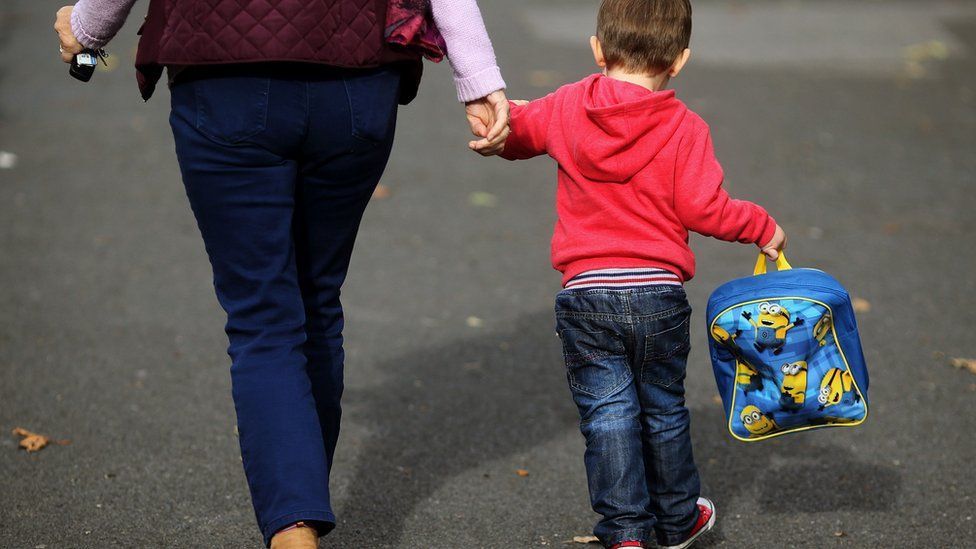Northern Ireland's Covid-19 infection rate remains "stubbornly high", meaning that hospitals are "struggling to cope", according to a senior GP.
Dr Frances O'Hagan of the British Medical Association (BMA) said hospitals were overwhelmed by coronavirus and other illnesses.
One problem was that too few people had been vaccinated for Covid-19, she said.
On Saturday Health Minister Robin Swann warned that the easing of Covid restrictions could be reversed.
Speaking to BBC One NI's Sunday Politics programme, Dr O'Hagan said the effect of the pandemic on the health service should not be underestimated.
"We still have stubbornly high levels of Covid," said the BMA's deputy chairperson in Northern Ireland.

The rolling seven-day average of coronavirus cases in Northern Ireland has not fallen below 1,000 cases a day since 15 July.
That means Northern Ireland is in the most prolonged period of high infection since the pandemic began.
On Sunday the Department of Health reported that five more people who had tested positive for coronavirus had died and another 1,601 cases of the virus were recorded.
"Our hospitals are really struggling to cope," said Dr O'Hagan.
"At this time of year to be running at 107% capacity - in all our hospitals across Northern Ireland - is just unheard of.
"That's 7% extra people who have no bed.
"So where are they? They're basically, unfortunately, in the corridors in our busy [emergency] departments and that means they're waiting on a bed."

The Stormont executive has decided that social distancing in pubs and restaurants will become guidance rather than a legal requirement from next Sunday.
Nightclubs will be allowed to reopen on the same date and the wearing of masks will not be mandatory for people when they are dancing.
Speaking on Saturday, Mr Swann said he would "not be deterred" from recommending the reimposition of restrictions if his health advisers believed it was necessary.
"I hope its not necessary and that's why I would encourage people to come forward get their Covid vaccine, their booster and their flu vaccine as well," he said.
'Poverty is health issue'
Mr Swann has asked for another £30m of public funding to be given to his department to support the health system over the winter.
Last month Finance Minister Conor Murphy warned that other departments may face "more pain" as he planned to increase spending on the health service.
On Sunday Alliance Party MLA Kellie Armstrong said that while it was right that the health service was made a priority, it was essential that funding for welfare payments was also considered.
Her comment comes after a £20 uplift to the universal credit benefit - brought in by the government at the start of Covid-19 pandemic - came to an end this month.

Stormont could offer to cover the cost but the price tag for that is thought by officials to be between £108m and £200m every year.
Ms Armstrong said the end to the increased payments would soon become a health problem.
"When people are living in poverty, not able to heat their house or eat, then we are creating more patients for health," she told Sunday Politics.
"It is time that we as Northern Ireland decide: are we going to keep our people out of hospitals by looking after them?
"While I completely understand that health needs money so do our citizens to prevent them actually ending up in hospital."















